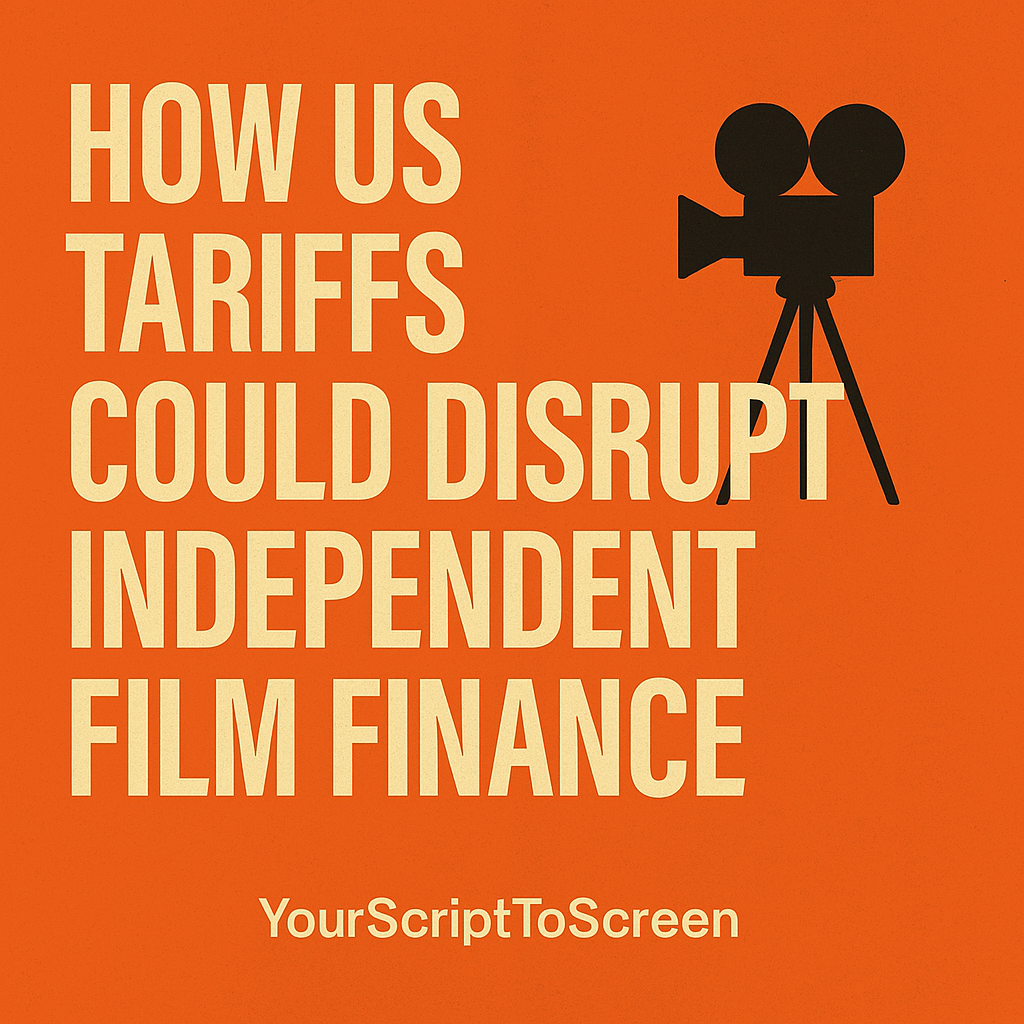
If the US brings in new or expanded tariffs, the ripple effects could go beyond big business and land squarely in the world of independent film finance.
Now, I know what you’re thinking — what do trade wars have to do with indie filmmaking? Quite a bit, actually.
Production costs could rise
Many indie films rely on imported kit — cameras, lighting, post-production software, even materials for set building. If tariffs are slapped on imports from key regions, costs start creeping up. Not ideal when you’re already working with tight budgets and trying to make every penny stretch on screen.
Currency swings could impact pre-sales
Tariffs often lead to trade tensions, and that can spook currency markets. For those of us relying on international co-productions or foreign sales, this matters. If the pound weakens or overseas buyers get jittery, pre-sale offers might come in lower — or disappear altogether.
That puts more pressure on gap financing or private equity, both of which tend to retreat when the economic waters get choppy.
Government support might tighten
Economic pressure usually means governments start tightening the purse strings. That can affect everything from national film bodies to regional tax credits — especially in territories where subsidies already come under scrutiny.
If you’re relying on soft money as part of your finance plan, it might not be as available — or as generous — in a tariff-driven downturn.
Investor confidence can take a hit
Investors in indie film often come from other sectors like tech, finance, or property — industries that tend to react quickly to political and economic shifts.
Tariffs can create market volatility, and in uncertain times, risk appetite shrinks. That means fewer people willing to back your brilliant-but-untested project, unless it’s got major talent, strong IP, or a guaranteed sales pipeline.
A real-world example: $3M indie in Spain
Let’s say you’re producing a $3 million indie feature in southern Spain, with a UK/Spain co-production setup:
- A new US tariff raises costs on gear rental and post software.
- Your international sales agent struggles to close a China deal due to content restrictions.
- The euro weakens, so your Spanish crew asks for payment in USD.
- And your US-based investor gets cold feet amid market jitters.
Each of those issues is manageable on its own — but together? It could force a delay, scale-back, or worse.
Global uncertainty adds friction
Tariffs are rarely introduced in isolation — they usually signal broader shifts in policy. That can lead to visa delays, tighter import/export rules, or even retaliatory media restrictions in key markets like China or the EU.
All of that creates more paperwork, and more unpredictability — none of which are helpful when you’re trying to mount a complicated co-production.
Bottom line: Keep it on your radar
This isn’t about panic — but it is about awareness. If you’re developing a project now, especially one with international components, consider building in a bit of buffer for potential cost or timing changes.
Trade policy might seem like a world away from the indie trenches — but it pays to keep an eye on the bigger picture.
Leave a Reply